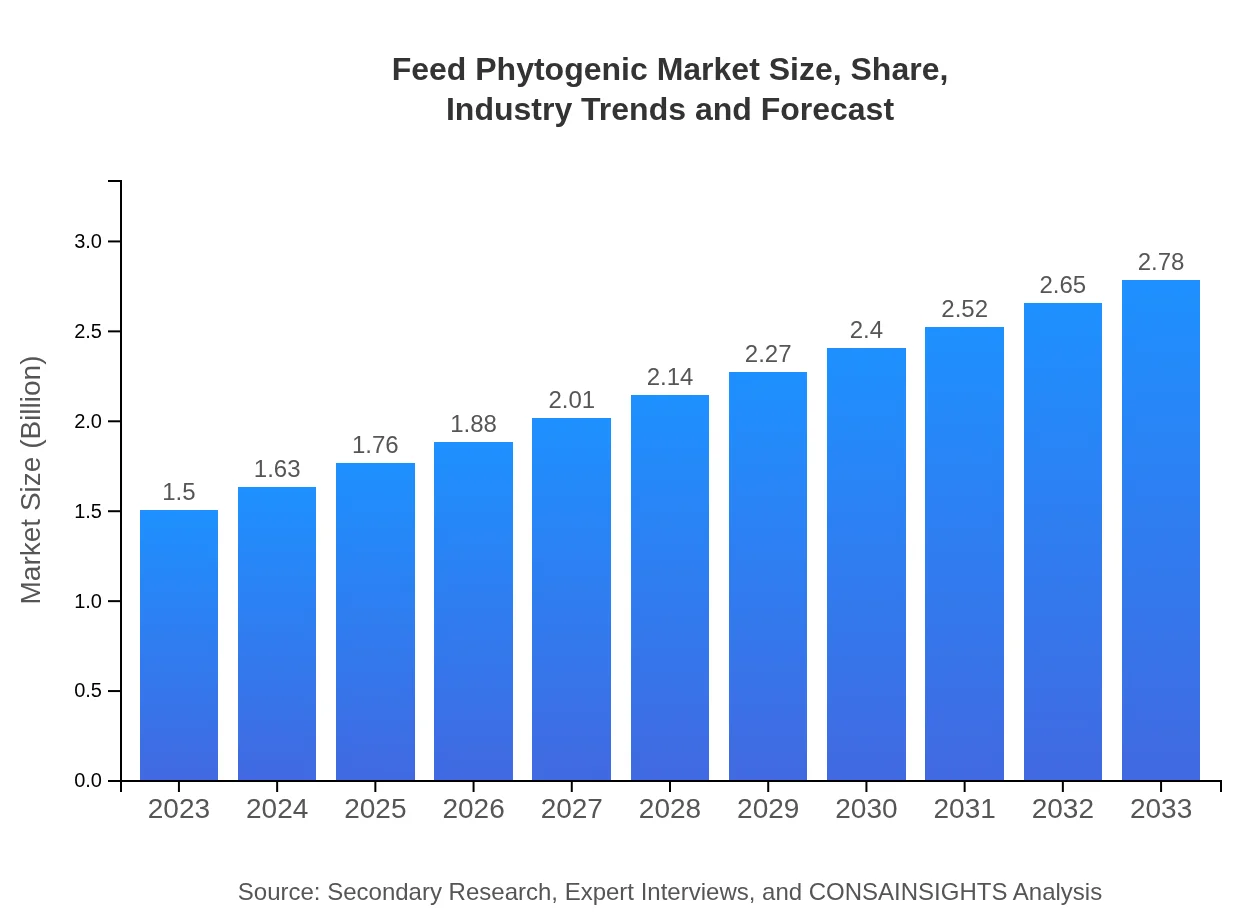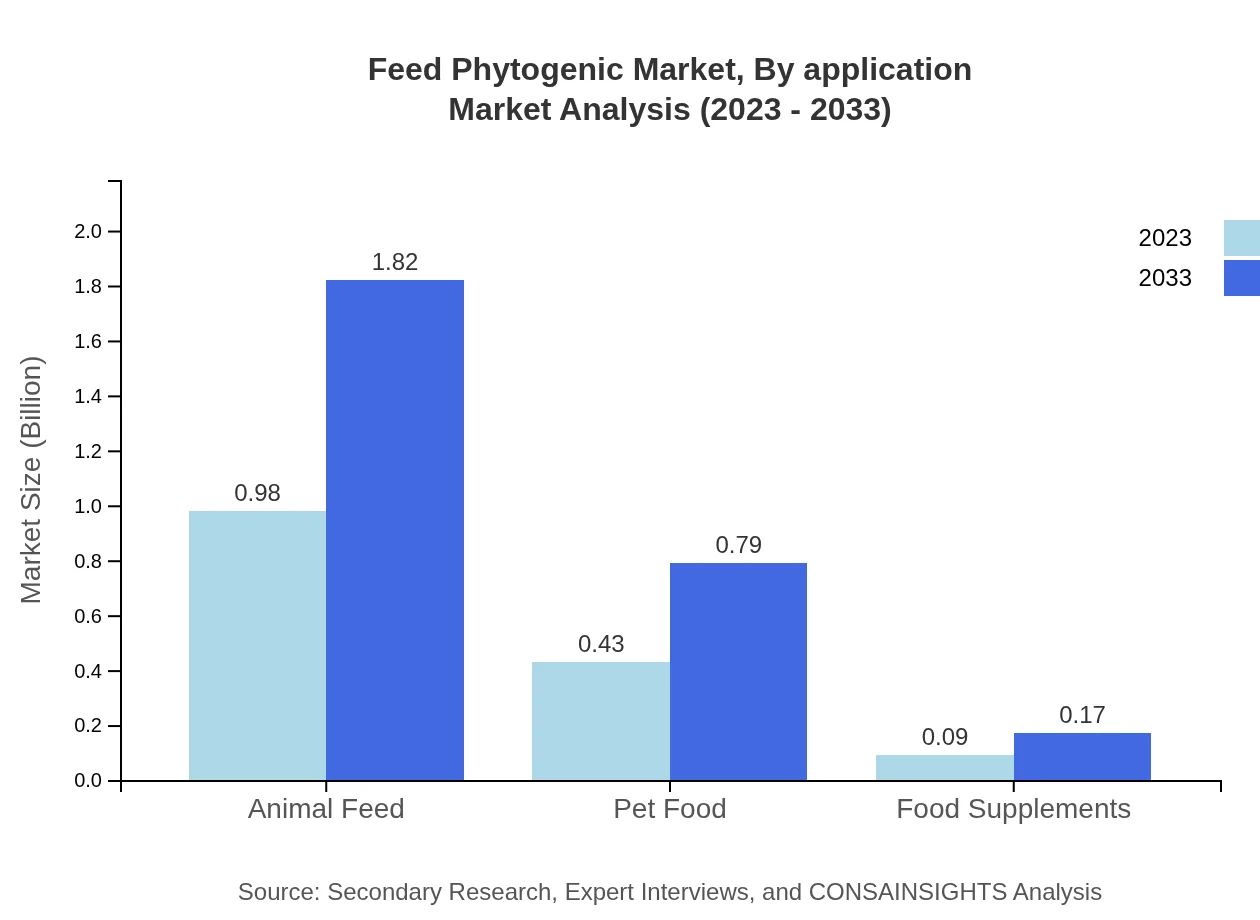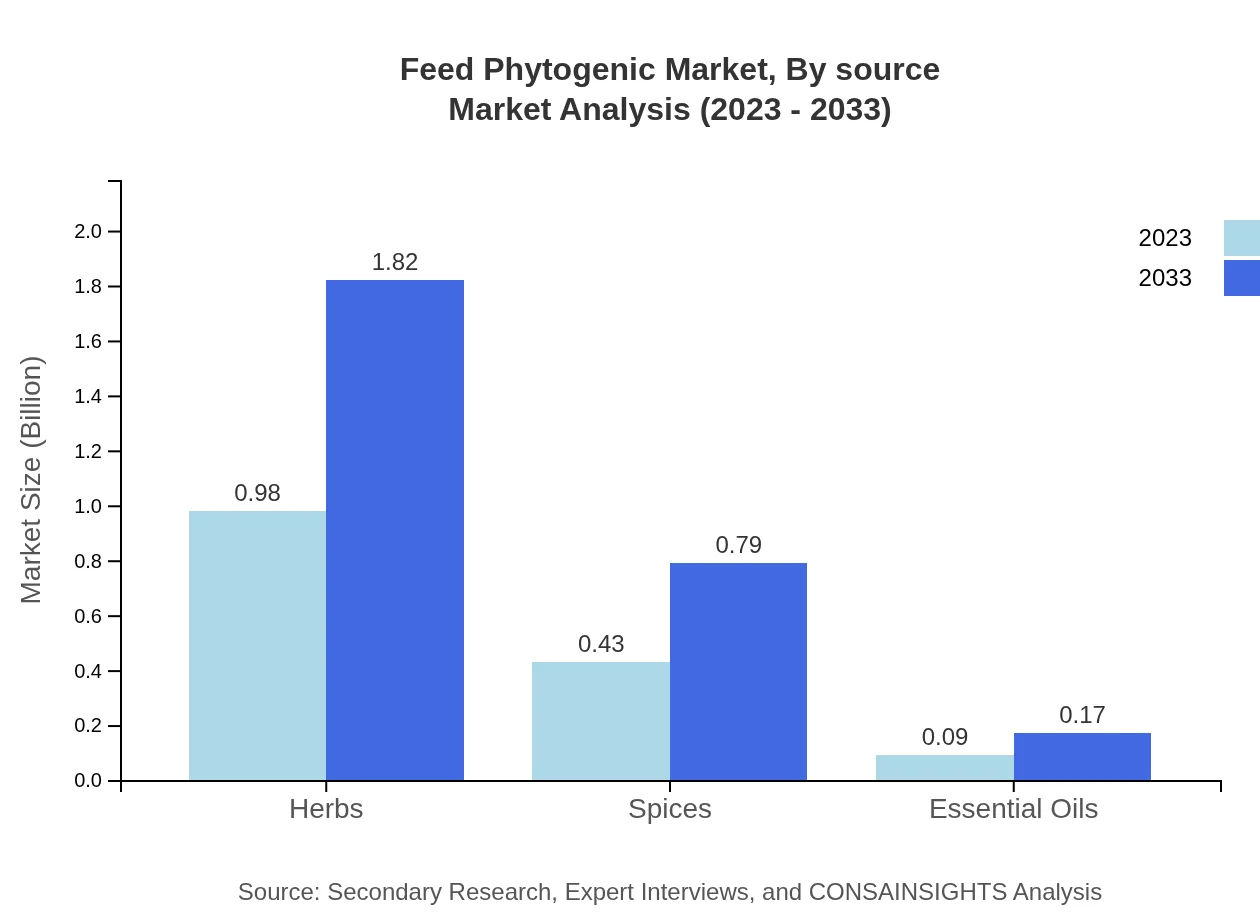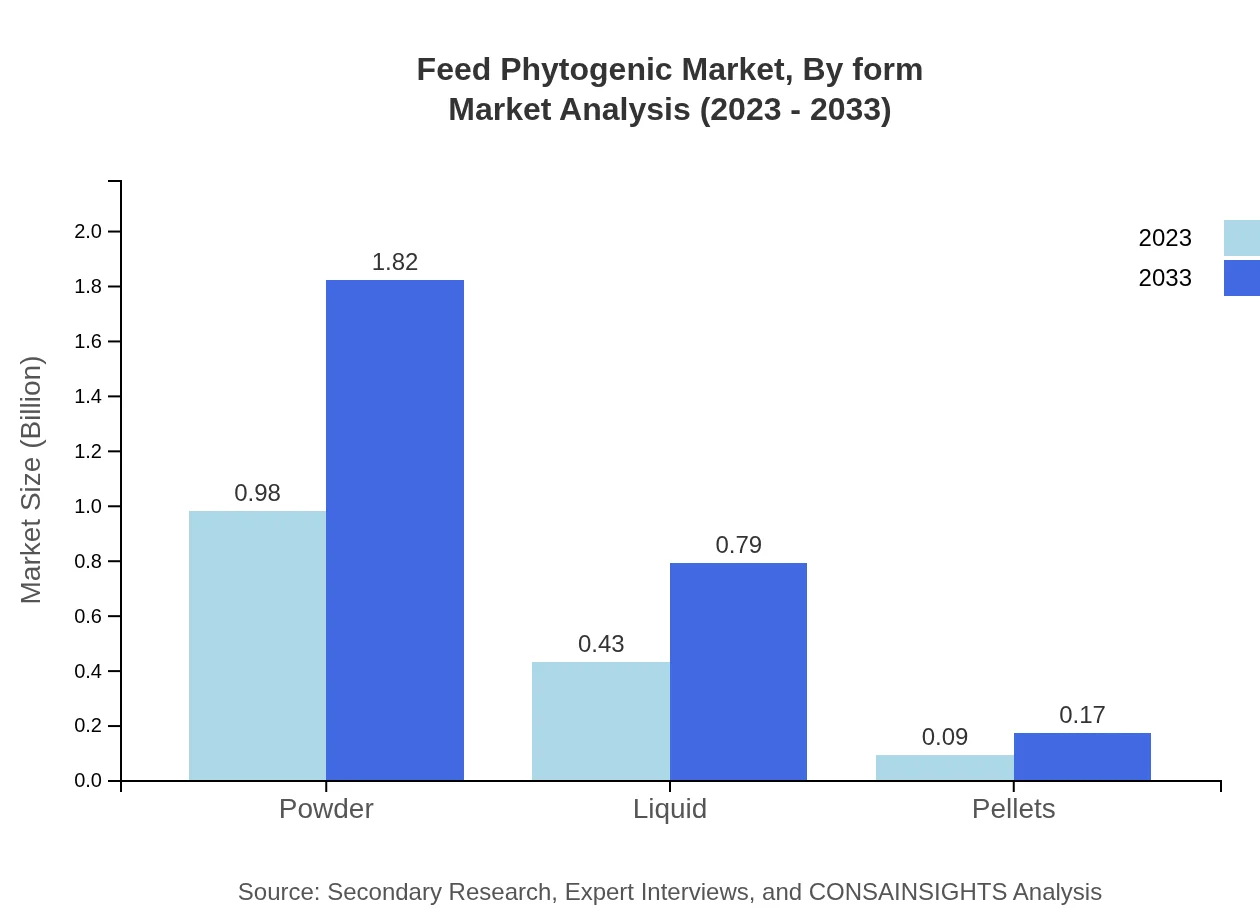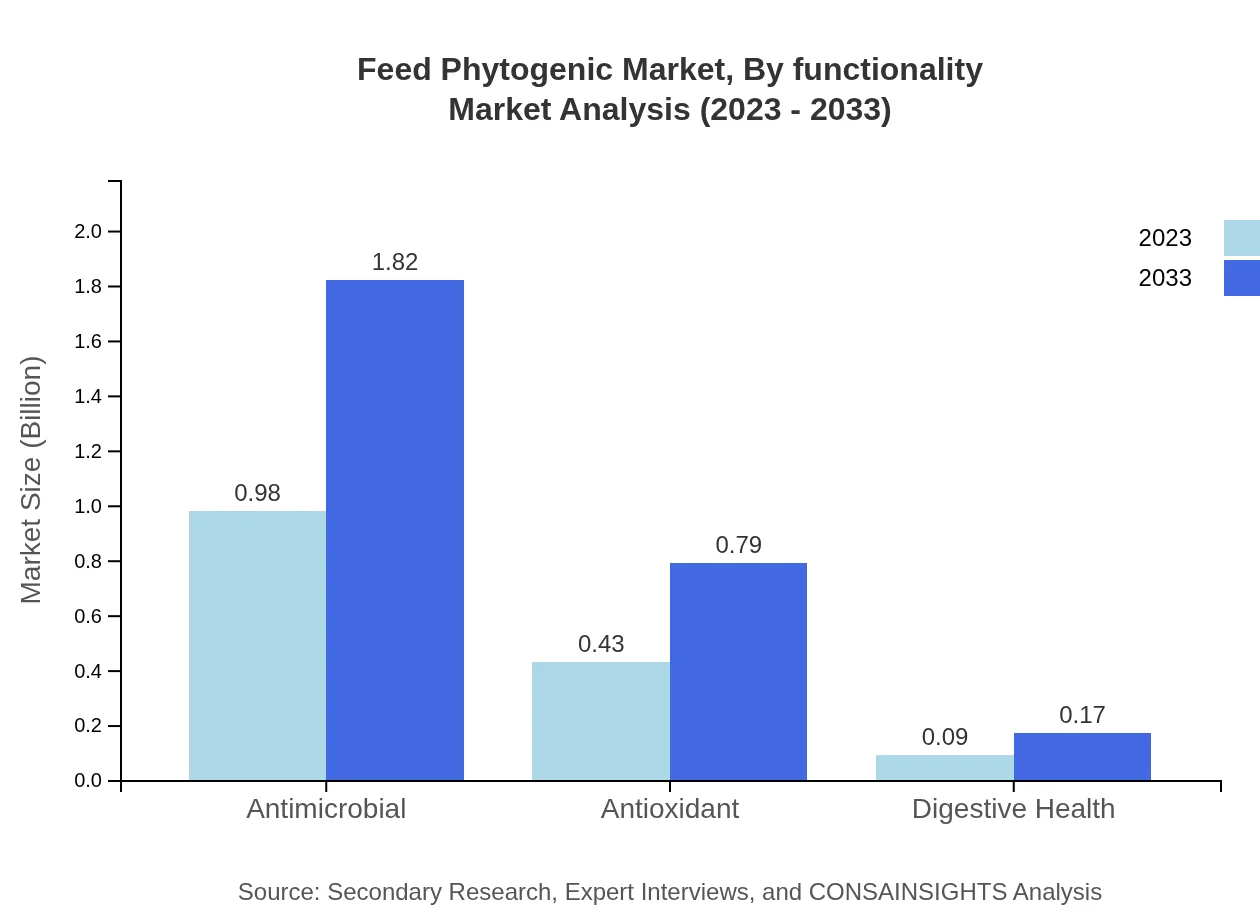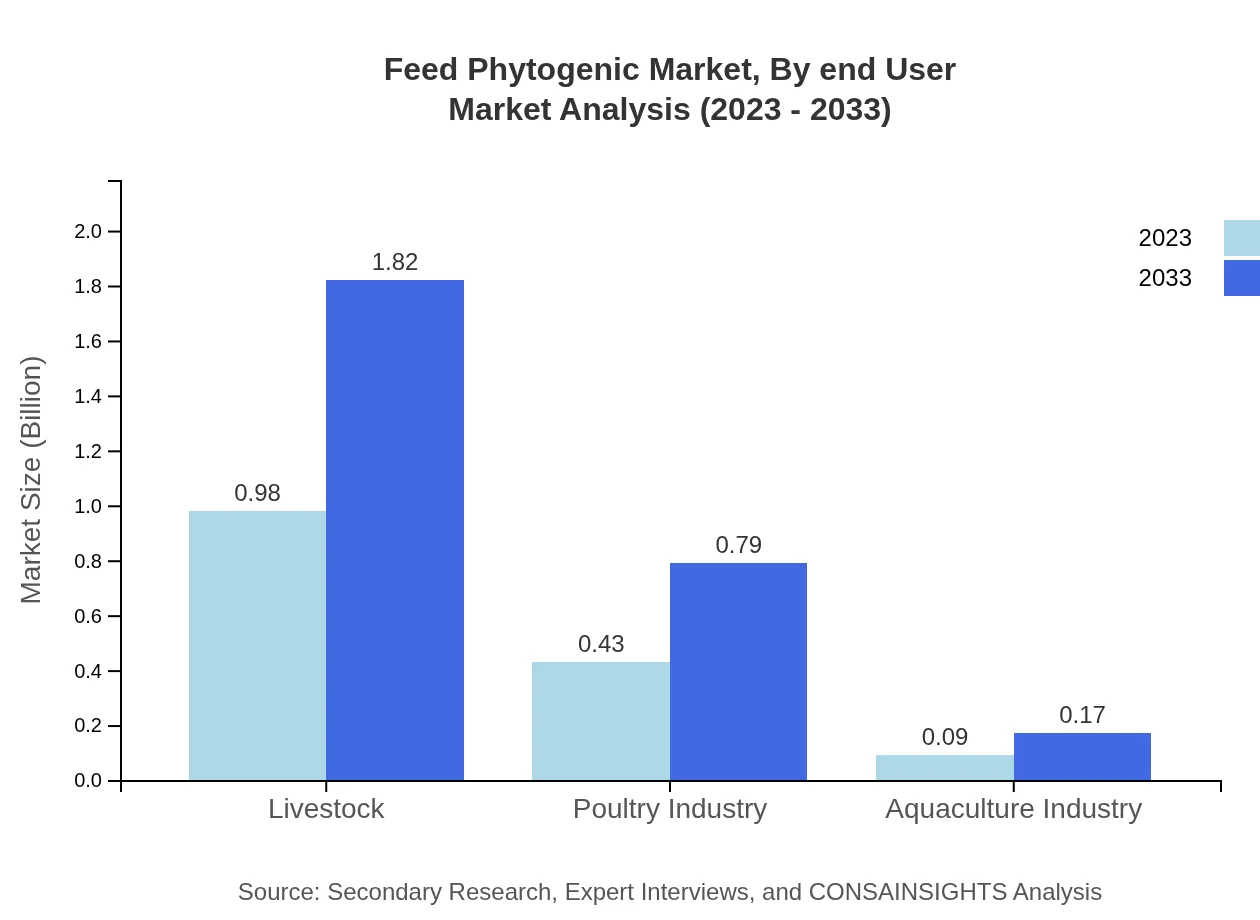Feed Phytogenic Market Report
Published Date: 31 January 2026 | Report Code: feed-phytogenic
Feed Phytogenic Market Size, Share, Industry Trends and Forecast to 2033
This market report provides a comprehensive analysis of the Feed Phytogenic market from 2023 to 2033, including detailed insights on market size, trends, regional dynamics, and competitive landscape. It aims to guide stakeholders with informed decision-making and foresight into future developments.
| Metric | Value |
|---|---|
| Study Period | 2023 - 2033 |
| 2023 Market Size | $1.50 Billion |
| CAGR (2023-2033) | 6.2% |
| 2033 Market Size | $2.78 Billion |
| Top Companies | BASF SE, Royal DSM N.V., Kemin Industries, Inc., Cargill, Incorporated, Nutreco N.V. |
| Last Modified Date | 31 January 2026 |
Feed Phytogenic Market Overview
Customize Feed Phytogenic Market Report market research report
- ✔ Get in-depth analysis of Feed Phytogenic market size, growth, and forecasts.
- ✔ Understand Feed Phytogenic's regional dynamics and industry-specific trends.
- ✔ Identify potential applications, end-user demand, and growth segments in Feed Phytogenic
What is the Market Size & CAGR of Feed Phytogenic market in 2023?
Feed Phytogenic Industry Analysis
Feed Phytogenic Market Segmentation and Scope
Tell us your focus area and get a customized research report.
Feed Phytogenic Market Analysis Report by Region
Europe Feed Phytogenic Market Report:
The European market is characterized by a strong regulatory framework favoring natural feed additives. The market is anticipated to expand from USD 0.47 billion in 2023 to USD 0.88 billion by 2033, driven by increasing investments in research and sustainable farming practices.Asia Pacific Feed Phytogenic Market Report:
The Asia Pacific region is projected to witness significant market growth due to the expanding livestock population and increased awareness of feed additives. The market size in 2023 is estimated at USD 0.26 billion, growing to USD 0.48 billion by 2033, reflecting a strong CAGR driven by the rising demand for quality meat, eggs, and dairy products.North America Feed Phytogenic Market Report:
North America, with its advanced agricultural practices and established livestock sector, is expected to lead the Feed Phytogenic market, growing from USD 0.54 billion in 2023 to USD 1.01 billion by 2033. Innovations in feed formulations and stringent regulations against antibiotics in animal husbandry contribute to this robust growth.South America Feed Phytogenic Market Report:
In South America, the Feed Phytogenic market remains relatively small, valued at USD 0.02 billion in 2023, expected to reach USD 0.04 billion by 2033. The gradual adoption of natural feed additives in livestock feed is driven by the steady growth of agribusiness and consumer demand for healthy food products.Middle East & Africa Feed Phytogenic Market Report:
The Middle East and Africa market is gradually evolving, with the market size growing from USD 0.20 billion in 2023 to USD 0.37 billion by 2033. Increased awareness and adoption of phytogenic additives to improve livestock health and productivity are pivotal in this growth trajectory.Tell us your focus area and get a customized research report.
Feed Phytogenic Market Analysis By Application
The application of Feed Phytogenic spans various sectors, particularly livestock, poultry, and aquaculture. In 2023, the livestock segment dominates the market with an estimated size of USD 0.98 billion, expected to reach USD 1.82 billion by 2033, representing a significant share of 65.32%. The poultry segment follows, currently valued at USD 0.43 billion and projected to grow to USD 0.79 billion, holding 28.47% of the market share.
Feed Phytogenic Market Analysis By Source
In terms of source, herbs and spices are the leading contributors to the Feed Phytogenic market. The herbs segment accounts for about USD 0.98 billion in size for 2023 and is forecasted to reach USD 1.82 billion by 2033. Spices represent a significant part as well, with a market value of USD 0.43 billion in 2023 and expected growth to USD 0.79 billion by 2033.
Feed Phytogenic Market Analysis By Form
Considering product forms, powders remain the most popular choice, with an estimated market size of USD 0.98 billion in 2023, showing growth towards USD 1.82 billion by 2033. Liquids and pellets are also present, with respective sizes of USD 0.43 billion and USD 0.09 billion in 2023, projected to grow to USD 0.79 billion and USD 0.17 billion respectively.
Feed Phytogenic Market Analysis By Functionality
Functional aspects such as antimicrobial, antioxidant, and digestive health are pivotal in the Feed Phytogenic market. The antimicrobial segment records a substantial size of USD 0.98 billion in 2023, forecasting growth to USD 1.82 billion by 2033, while antioxidants are anticipated to rise from USD 0.43 billion to USD 0.79 billion in the same period.
Feed Phytogenic Market Analysis By End User
The Feed Phytogenic market serves diverse end-users, notably feed manufacturers and livestock producers. The market share for feed manufacturers is substantial, with projections indicating growth from USD 0.98 billion in 2023 to USD 1.82 billion by 2033, while pet food producers and food supplement manufacturers also experience growth, reflecting a shift towards natural ingredients.
Feed Phytogenic Market Trends and Future Forecast
Tell us your focus area and get a customized research report.
Global Market Leaders and Top Companies in Feed Phytogenic Industry
BASF SE:
BASF SE is a leading global chemical company that provides innovative feed additives, including phytogenics. Their product portfolio focuses on enhancing animal performance and health through research-driven solutions.Royal DSM N.V.:
Royal DSM N.V. specializes in nutritional products and has a strong emphasis on sustainability. They offer a range of phytogenic products that improve feed efficiency and promote animal wellness, aligning with market trends.Kemin Industries, Inc.:
Kemin Industries is a prominent player in the animal nutrition sector, providing customized feed solutions and phytogenic additives that enhance livestock health and productivity across global markets.Cargill, Incorporated:
Cargill operates in various segments of the food production chain and provides a wide range of feed additives including phytogenics that respond to consumer demand for natural and effective animal nutrition.Nutreco N.V.:
Nutreco N.V. is involved in animal nutrition and aquafeed, focusing on advancing animal nutrition through innovative products, including phytogenics that support sustainable livestock production.We're grateful to work with incredible clients.









FAQs
What is the market size of feed Phytogenic?
The feed-phytogenic market is valued at approximately $1.5 billion in 2023, with an anticipated compound annual growth rate (CAGR) of 6.2% through 2033, reflecting a strong upward trend and demand within this sector.
What are the key market players or companies in this feed Phytogenic industry?
Key players in the feed-phytogenic industry include prominent agricultural and biotechnology companies specializing in natural feed additives, enhancing livestock productivity and contributing to sustainable practices.
What are the primary factors driving the growth in the feed Phytogenic industry?
The growth of the feed-phytogenic industry is driven by increasing demand for natural feed additives, growing awareness about livestock health, and rising consumer preferences for organic products.
Which region is the fastest Growing in the feed Phytogenic?
The fastest-growing region in the feed-phytogenic market is North America, projected to expand from $0.54 billion in 2023 to $1.01 billion by 2033, driven by innovation and investment in agricultural technologies.
Does ConsaInsights provide customized market report data for the feed Phytogenic industry?
Yes, ConsaInsights offers tailored market report data specific to the feed-phytogenic industry, allowing clients to access insights that match their unique business needs and market conditions.
What deliverables can I expect from this feed Phytogenic market research project?
Deliverables from the feed-phytogenic market research project include comprehensive reports, market analysis, forecasting data, and insights into industry trends and competitive landscape.
What are the market trends of feed Phytogenic?
Current market trends in the feed-phytogenic sector include increased adoption of herbal additives, a shift towards sustainable farming practices, and a growing focus on product efficacy and safety in animal nutrition.

